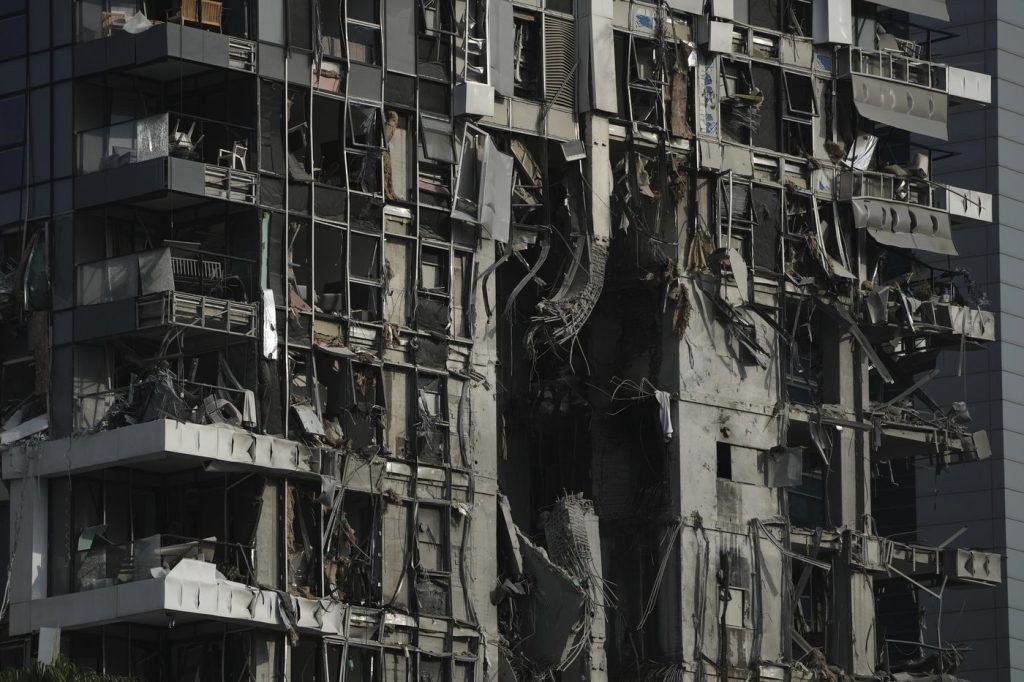On Saturday, Israel issued a warning for more attacks on Iran following a series of retaliatory strikes from Tehran that resulted in the deaths of three people and injuries to dozens in Israel. The flare-up of violence stemmed from extensive Israeli airstrikes on Iran's nuclear and military facilities on the preceding Friday, which Iranian officials claim have resulted in significant casualties.
Israeli military sources reported that hundreds of airstrikes over the two days killed nine top Iranian experts involved in the nuclear program, alongside high-ranking military officials. In contrast, Iran's U.N. ambassador stated that the Iranian attacks resulted in 78 fatalities and over 320 injuries. The Iranian province of Eastern Azerbaijan noted that 30 military personnel and one rescuer were killed due to the airstrikes, with 55 others injured, as the intensity of the conflict evolved dramatically on the ground.
In a related development, a sixth round of indirect talks between the U.S. and Iran regarding Tehran's nuclear program, scheduled for Sunday in Oman, was canceled following Israel's military actions against Iran. Oman’s foreign minister confirmed the cancellation, leading to a consensus that the region's political landscape had shifted dramatically following recent escalations.
Additionally, Iranian state media reported significant casualties, with state television claiming around 60 people died in a single strike in Tehran. The Israeli military, in what it termed Operation “Rising Lion,” reported conducting airstrikes on more than 400 targets, focusing heavily on military infrastructure, including missile sites and air defense systems.
European and regional powers, including China and Turkey, condemned Israel's operations, labeling them as violations of international law. China’s Foreign Minister Wang Yi emphasized that the Israeli attacks set a “dangerous precedent,” whereas Turkish President Recep Tayyip Erdogan extended condolences to Iranian President Masoud Pezeshkian, asserting that the attacks threaten regional stability.
In response to the escalating violence, satellite images emerged indicating that Iran's Natanz nuclear facility suffered extensive damage, raising concerns about potential nuclear leaks. The International Atomic Energy Agency reported no elevated radiation levels but acknowledged the ongoing hazard posed by military strikes. Iranian media also suggested that crucial components of Iran's ballistic missile arsenal had been damaged.
The situation further deteriorated as Israel claimed to have attacked a refinery in Iran's South Pars gas field, marking a significant escalation by targeting Iran's energy infrastructure. In addition, Iranian authorities reported injuries from unexplained objects falling in Jordan, fueling fears of broader regional instability.
Iran’s Supreme Leader, Ayatollah Ali Khamenei, appointed new officials within the Revolutionary Guard, responding to the high-profile casualties resulting from the strikes. Israeli airstrikes also reported a total of seven soldiers injured, marking the first instances of military casualties for Israel during the ongoing conflict, while the country’s Ben Gurion International Airport remained closed amid security concerns.
International responses to the violence included a call for de-escalation from British Prime Minister Keir Starmer and Saudi Crown Prince Mohammed bin Salman. They highlighted the need for a diplomatic resolution amidst escalating violence that could lead the Middle East into chaos. Thereafter, the Egyptian government announced delays to the Grand Egyptian Museum's opening date, attributing the decision to the ongoing conflict.
Despite ongoing military operations, the conflict saw remarks from U.N. Secretary-General Antonio Guterres, who called for a ceasefire and emphasized the necessity of diplomacy to prevent further escalation. As violence surged between Israel and Iran, the global community watched closely, stressing an urgent need for dialogue and resolution in a rapidly changing geopolitical landscape.











